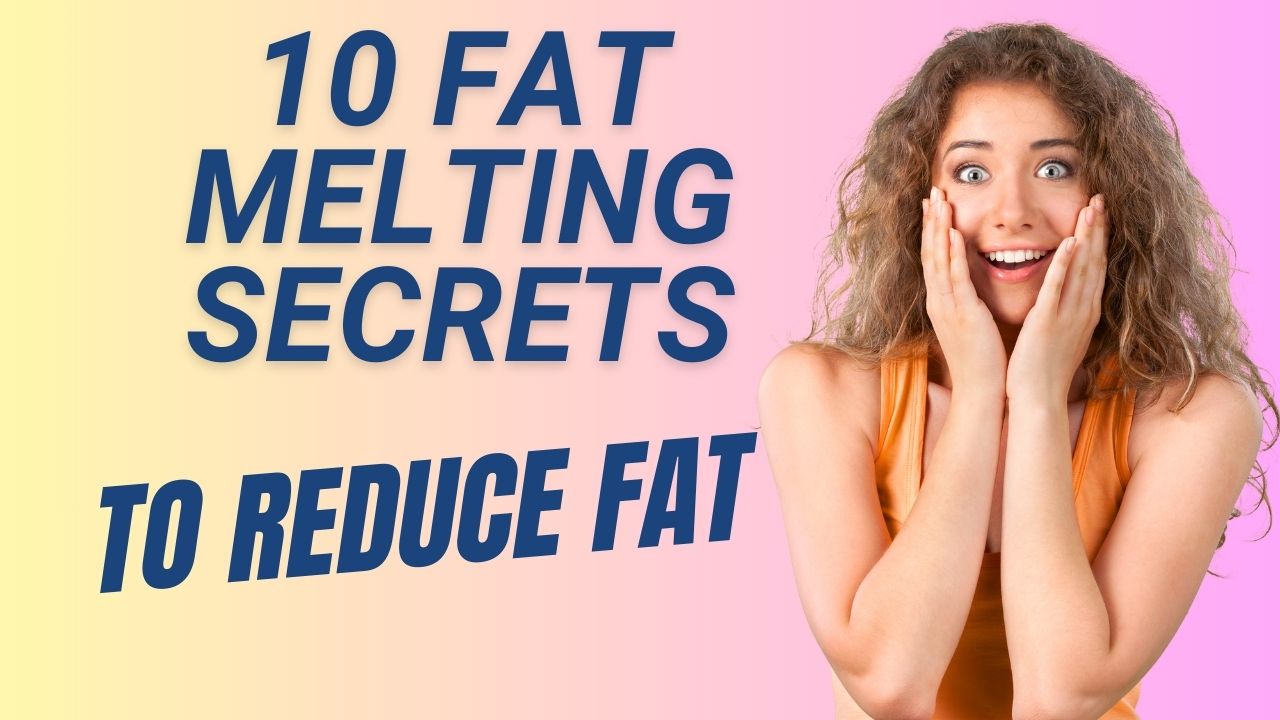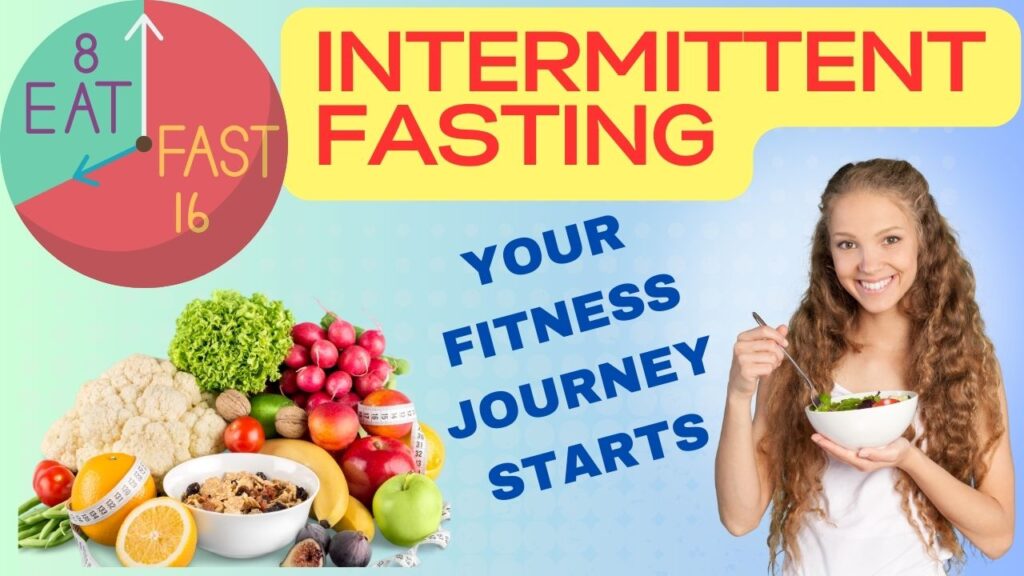
Welcome to our blog about intermittent fasting! If you’ve heard about this popular trend but aren’t sure what it is, you’re in the right place. We’ll explain what intermittent fasting is and how you can start doing it yourself. By the end, you’ll know what to expect and how to make intermittent fasting work for you. Let’s start.
- Understanding – What is Intermittent Fasting
- Benefits of Intermittent Fasting
- How to do intermittent fasting and its Guidelines
- What to eat / Diet Plan – What should you eat during the remaining 8 hours?
- Important Factors to Keep in Mind – 16-hour fasting works for some, not for all
1. Understanding – What is Intermittent Fasting

Intermittent fasting is different from a regular diet. Instead of worrying about what you eat, worry about when you eat. You go through cycles of eating and fasting. It is flexible and easy as you can adjust it to suit your lifestyle. There are different methods, but the most common involves fasting for 16 hours and eating within 8 hours every day.
Benefits of Intermittent Fasting
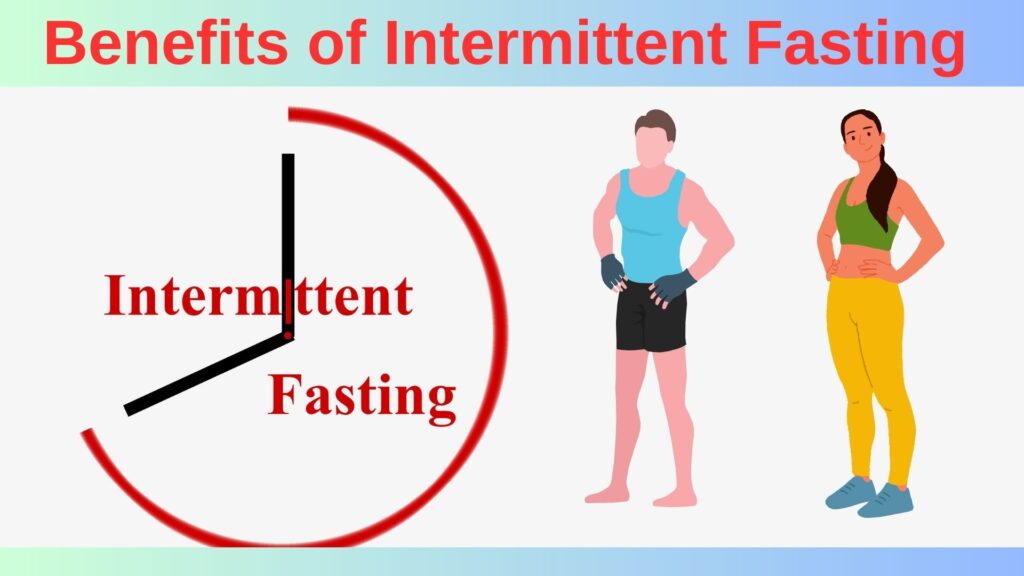
Intermittent fasting, like a 16-hour break from eating, gives our organs a rest. Imagine our stomach as a hardworking machine. When we continuously consume excess food throughout the day, it becomes difficult to digest it properly. This can lead to problems like feeling of heaviness, swelling and even serious diseases like diabetes and high cholesterol. But when we give rest to our stomach and other organs through fasting, they get a chance to rest and refresh. It not only improves digestion but also promotes overall health. Fasting can also help us control our weight and reduce our risk of getting sick. So, it’s like giving our body a mini-vacation, allowing us to live a happier, healthier life.
Intermittent fasting provides the following major benefits:-
1. Weight Loss and Fat Burning –When we practice intermittent fasting, we eat during a specific time period, and then we don’t eat for the rest of the time. By doing this, we naturally eat fewer calories, which can help us lose weight. Our body gets a chance to use up the stored fat for energy, which makes us healthier.
Intermittent fasting is a way of eating that can help us maintain a healthy weight and burn fat. Intermittent fasting means eating only during certain hours and fasting for the rest of the day. During the fasting period, our body starts using stored fat for energy. For example, if we burn 3000 calories through exercise or other activities and consume 2000-2500 calories during the eating window, our body begins using stored fat for energy. This promotes healthy and sustainable fat loss over time.
It’s important to note that with intermittent fasting, you still need to eat the right amount of calories for your body’s needs. Your aim for a small calorie deficit, where you burn slightly more calories than you consume. It encourages your body to use stored fat for energy, which helps burn fat and reduce weight.
It is important to remember that eating very few calories (less than 1500 per day) while doing intermittent fasting or any other diet is not good for your health. Your body needs adequate nutrients to function properly because severe calorie restriction can lead to nutrient deficiencies and health problems. Therefore it is necessary that a balanced and nutritious diet is taken during the period of intermittent fasting. Always remember that avoid heavy or fatty foods and choose light and healthy foods that give you energy.
In this intermittent fasting, we are not taking any extra calories from outside because our body starts burning the calories inside, only then fat starts burning and our weight starts decreasing. When this process of fat burning starts, our metabolism improves.
2. Better blood sugar control – Intermittent fasting helps our bodies handle sugar better because when we take a break from eating, our body becomes better able to use insulin to process sugar for energy. It helps prevent type 2 diabetes and keeps our blood sugar levels stable. Additionally, fasting gives our pancreas, which produces insulin, a rest, allowing it to work more efficiently later on.
3. Good for heart – Fasting may improve heart health by lowering blood pressure, reducing inflammation, and improving cholesterol levels.
4. Sharper brain – Fasting can boost a protein called BDNF, which helps our brain cells grow and function better, making our thinking clearer and protecting against brain diseases.
5. Cell repair and longer life – Fasting helps repair and clean our cells, which may help us live longer and avoid diseases as we age.
6. Faster Metabolism – It can speed up our metabolism, giving us more energy and better overall health.
7. Detoxification – Intermittent fasting is a way of healing the body from within as your body repairs itself completely when your stomach is empty. That’s why keeping the stomach empty for a few hours cures many diseases and starts burning fat. Intermittent fasting involves limiting the time periods in which you eat, and fasting for the remaining hours. This helps create a calorie deficit and can result in weight loss. This can be an effective way to support your body’s natural detoxification processes and improve overall health, but make sure when you eat in this period, should be light food, not heavy.
How to do Intermittent Fasting

Intermittent fasting can be practiced in a number of ways, but there is mentioned very common and best fasting method about the 16/8 method, where you fast for 16 hours and eat during 8-hour window
The 16/8 method – For example, you may choose fasting window for 16 hours and then eating window 8 hours. It is a form of intermittent fasting that can help reduce calorie intake and promote fat loss, let’s understand with an example, normally, you eat three meals a day – breakfast, lunch and dinner. You can choose to skip any one of them. For example, you can skip breakfast and eat only lunch and dinner, or skip dinner and eat only breakfast and lunch.

If you eat dinner at 7 pm, your fasting period will extend to 11 noon the next day, which means you will skip breakfast. Then, you eat food between 11 noon and 7 pm. If these specific times don’t fit your schedule, you can adjust them. For example, you can fast from 8 pm to 12 am and eat from 12 noon to 8 pm, whichever suits you best.
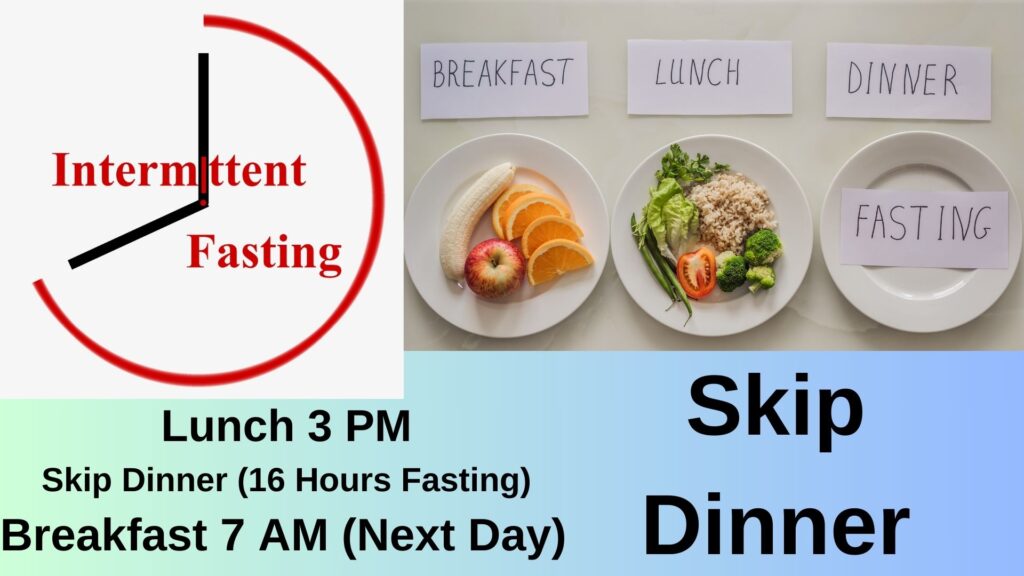
If you are planning to skip dinner, you can have lunch at 3 pm and then skip dinner. After 16 hours of fasting, you can have breakfast the next day at 7 am to complete your fasting period.
However, skipping lunch may not be the most suitable option as it leads to eating breakfast too early and dinner too late. For example, if you have breakfast at 6 am, skipping lunch would mean having dinner at 10 pm, which is a very long interval. Therefore, the other two methods are generally better choices, as they allow for an 8-hour fasting period during sleep.
By skipping one meal, they are practicing a type of intermittent fasting, but ensure that the other food eaten is nutritious and balanced, not heavy meals.
Intermittent Fasting Guidelines
1) Eating Window (Monitor Portion Sizes)

Eating window does not mean you can eat anything, you still have to avoid sugary food, fried food and junk food and give preference to your home made food. Monitoring portion sizes is important to maintain a healthy diet. During fasting, it is essential to listen to your body’s hunger signals. When you break your fast, aim for a balanced meal that satisfies your hunger without overeating.
2) Fasting Window (Stay Hydrated)

During fasting periods, it’s important to stay hydrated. In general, it is best to consume water, coconut water and vegetable juices and nothing else, and if your body needs something other than water, you can have non-caloric drinks during fasting. Non-caloric beverages include plain tea (without milk or sugar), black coffee (without creame or sugar) and plain sparkling water. These drinks don’t contain a lot of calories and usually don’t cause a problem while fasting.
3) Prioritize nutrient-rich foods (Make Healthy Food Choices)

When you start eating again after fasting, Choose foods that are rich in nutrients like vitamins, minerals and antioxidants. These foods provide essential nutrients for your body and promote overall well-being. Choose fruits, vegetables, lean proteins such as legumes, tofu, quinoa and whole grains such as brown rice or whole wheat bread. It is best to avoid processed foods and sugary treats as they are not good for you.
4) Listen to Your Body and Start Slowly

Intermittent fasting may not be for everyone. Before starting this fasting listen to your body and find the fasting routine that suits you best. Before you start intermittent fasting, it’s important to talk to your doctor. Once you get their approval, it becomes easier to implement the practice. If you are new to intermittent fasting, start with shorter fasting periods and gradually lengthen them as you get used to it.Start with 12 hours of fasting and gradually you can do 16/8 method or others as per your body requirement.
If you feel unwell or extremely tired during the fast, it is essential to listen to your body and adjust your approach accordingly. Intermittent fasting may not be suitable for everyone, so consult a health care professional if you have any concerns.
5) Incorporate Physical Activity
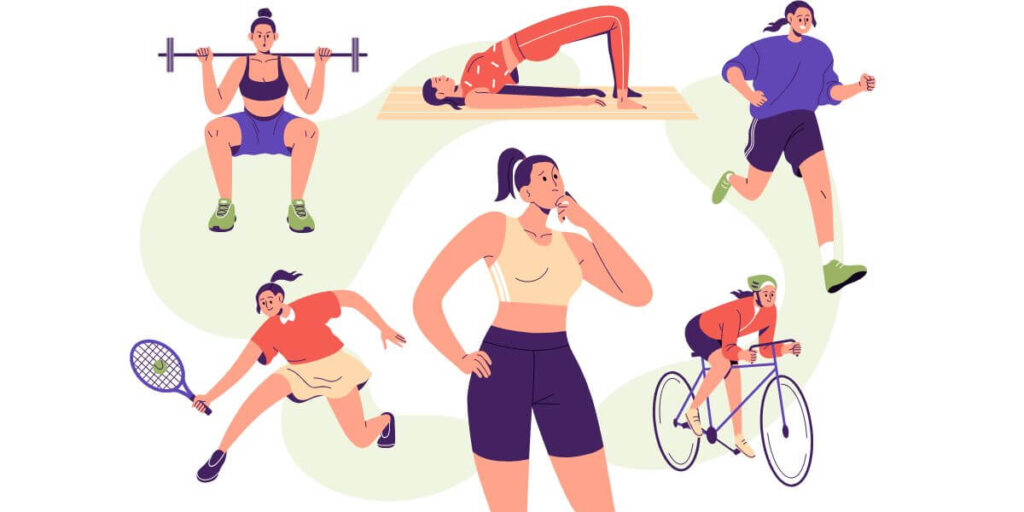
Exercise helps make intermittent fasting even better. Try to do a variety of exercises, like walking, lifting weights, and stretching.
6) Get enough sleep

Quality sleep is essential for overall health and well-being. Aim for 7-9 hours of restful sleep each night to maintain your body’s natural rhythm.
7) Be patient and flexible
It may take time for your body to adjust to intermittent fasting, so be patient with yourself. It’s also okay to modify your fasting routine based on your personal needs and lifestyle. Flexibility is the key to long-term success. (Flexibility means being able to change things when needed. If your fasting plan doesn’t suit you, it’s okay to change it up to find what works best for you.)
8) Stay busy
Keep yourself busy during fasting to avoid feeling hungry. Do things you like or stay occupied with work or hobbies.
9) Stay Positive
Adopt a positive mindset towards intermittent fasting. Focus on the benefits it brings to your health and well-being rather than viewing it as a restrictive diet.
What to Eat / Diet Plan
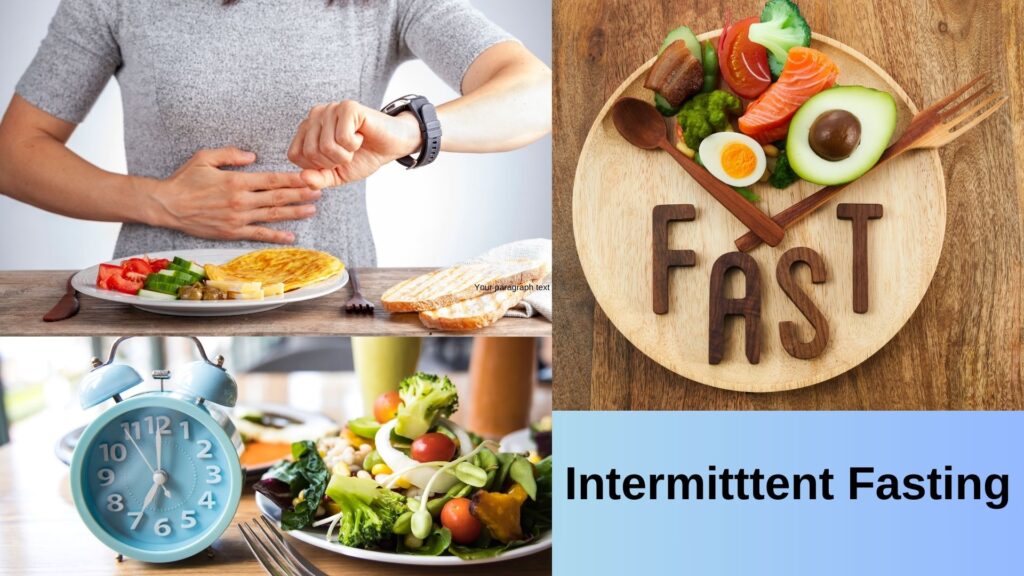
During your 8-hour eating window, aim for a balanced diet that includes a variety of nutrient-rich foods. Here’s a suggestion:
Lean protein – Plant-based lean protein options include tofu, lentils, chickpeas, quinoa and a variety of legumes such as black beans, kidney beans. These foods are high in protein, low in fat, and can be used in a variety of recipes, making them ideal choices for vegetarians and vegans to meet their protein requirements.
Healthy Fats – Include foods rich in healthy fats like avocados, nuts, seeds and olive oil to keep you heart healthy and keep you feeling full.
Complex carbohydrates – Opt for whole grains like brown rice, quinoa, oats and sweet potatoes to provide sustained energy and fiber.
Vegetables and fruits – Eat colorful fruits and vegetables to provide essential vitamins, minerals and antioxidants. Aim for a variety of types and colors to ensure you get a wide range of nutrients.
Hydration – Don’t forget to drink plenty of water during your meals to stay hydrated and aid digestion.
Snacks (optional) – If you feel hungry between meals, opt for healthy snacks like Greek yogurt, a handful of nuts, or chopped vegetables with hummus to keep you satisfied without derailing your goals.
Remember to listen to your body’s hunger and fullness signals and adjust your portion sizes accordingly. Enjoy your food mindfully, savoring each bite and focusing on nourishing your body with nutritious foods.
Meal Plan for an 8-Hour Eating Window
12 PM – Lunch:
Choose one:
Sandwich or wrap with hummus and vegetables
Side Salad with Vegetarian Dressing
Vegetarian Protein Bowl with Quinoa, Tofu and Vegetables
Cup of vegetable soup
Fruit or vegan cookie pieces
Fragrant rice dish mixed with vegetables
4:00 PM – Tea Time:
Drink tea without sugar. If you want, you can use coconut sugar, jaggery or stevia.
8 PM – Dinner:
Enjoy: Chickpea Salad
Quinoa or brown rice meal with vegetables and protein
Salad filled with various vegetables
Soup with lean protein and lots of vegetables
You can eat all of these options or just choose one—it’s up to you and what you’re in the mood for.
When we keep eating all the time, it does not get a chance to rest and digest properly.
Important Factors to Keep in Mind
1. Using Fasting to Improve Health – If you’re dealing with health issues like high blood pressure, diabetes, or obesity, it could mean there are toxins built up in your body. Fasting is a powerful way to clean out these toxins and improve your health. Before starting fasting, it’s important to talk to your doctor, especially if you take medication. They can help you adjust your medication schedule for your fasting period.
2. Adapting Intermittent Fasting with Vegetable Juice – When you are about to end your 16-hour fast, it is good to drink vegetable juices like bottle gourd, bottle gourd, cucumber, or coconut water a few hours before eating. These juices help cleanse your body faster because they enter when your body is already cleansing itself. But avoid tea, coffee, milk, soup or fruit juice before eating, as these can slow down the cleansing process. Choosing these basic vegetable juices can make intermittent fasting even better for you and keep you feeling great.
3. Not recommended for certain groups – Intermittent fasting may not be suitable for everyone, and it has some potential disadvantages. Intermittent fasting might not suit everyone. It is not recommended for pregnant or lactating women, teenager, people with a history of eating disorders, or people with certain medical conditions such as diabetes, low blood pressure or being underweight. They can do but It’s very important to talk to a doctor before starting intermittent fasting to make sure it’s safe for you. If you’re diabetic and worry about low blood sugar while fasting, keeping jaggery nearby can help if you feel dizzy. As I have mentioned earlier before starting any fasting routine, talk to your doctor, especially if you have health worries. But if you’re healthy with no issues, fasting for 16 hours daily can prevent future health problems and boost your well-being.
4. Not a magic solution – Intermittent fasting can be helpful for losing weight and staying healthy, but it’s not a magic trick. To be successful in the long run, it’s also important to eat a balanced diet, get regular exercise, and develop other healthy habits.
5. Potential side effects – When you start intermittent fasting, you may feel hungry, irritable, or have trouble concentrating easily. But don’t worry, these feelings will go away as your body gets used to it. Be patient with yourself and give it time to progress.
Remember, intermittent fasting isn’t a one-size-fits-all approach, so it’s important to find what works best for your body and lifestyle.
Definitely! Here is a brief FAQ about intermittent fasting:-
Q:What is intermittent fasting (IF)?
Answer: Intermittent fasting is an eating pattern that cycles between periods of eating and fasting. It does not decide which foods to eat, but rather when to eat them.
Q: How does intermittent fasting work?
Answer: When you fast, your body goes into a metabolic state called ketosis, where it starts burning stored fat for energy instead of glucose from food. This can reduce weight.
Q:What are the different types of intermittent fasting?
Answer: There are several methods, including the 16/8 method (fasting for 16 hours and eating every 8 hours), the 5:2 diet (eating normally for five days and restricting calories for two consecutive days) . Another method is alternate day fasting, where you eat normally one day and fast the next.
Question: Is intermittent fasting safe?
Answer: For most people, intermittent fasting is safe and may even have health benefits like improved insulin sensitivity, reduced inflammation, and weight loss. However, it may not be suitable for everyone, so it is important to consult a health care professional before starting.
Q: Can I drink fluids while fasting?
Answer: Yes, drinking water, black coffee and herbal tea are generally allowed during fasting, as these do not contain calories and will not break your fast.
Q: What should I eat while eating?
Answer: To make sure you’re getting the nutrients you need and staying satisfied, focus on nutritious, whole foods like fruits, vegetables, lean proteins, whole grains and healthy fats.
Q: How long does it take to see results from intermittent fasting?
Answer: Results vary depending on factors such as starting weight, diet, and activity level. Some people may notice changes in weight and energy levels in just a few weeks, while others may take longer.
Q: Can I exercise during intermittent fasting?
Answer: Yes, exercising while fasting is generally safe and may even increase fat burning. However, listen to your body and adjust the intensity of your workout if necessary.
Q: What should I do if I experience acidity, headache and fatigue during fasting?
Answer : If you are experiencing acidity, headache and fatigue during fasting:
Stay hydrated with normal water or coconut water.
Eat a balanced meal while breaking the fast.
Consider electrolyte supplements.
Adjust the fasting period gradually.
If you are experiencing persistent symptoms, it is wise to seek guidance from a healthcare provider.
When starting a 16-hour fast, your body may need time to adjust as you are accustomed to eating more frequently. Remember, your body adjusts over time, so there’s no need to worry. Start with a fasting period of 12 hours and gradually increase it to 16 hours as your body adjusts.
How long should one fast for 16 hours? We have two answers of this question.
a) Follow it as long as you want to maintain good health.
b) How long you fast for 16 hours depends on you and what feels right. Some people like it long term, others like short term. Just listen to your body and change it if needed.
This may seem difficult at first, but soon it will feel natural. You won’t even think about eating before 16 hours. Think of it as a normal way to eat healthy.
Q. Does my fasting period need to be the same every day, or can I vary the fasting hours on different days?
Answer: Try to follow the same fast every day so that your body gets used to it. But it’s okay if it changes sometimes. You can fast for different hours depending on what works best for you and your schedule. For example, you can fast from 6 pm to 10 am on one day and from 7 pm to 11 am on the next day






